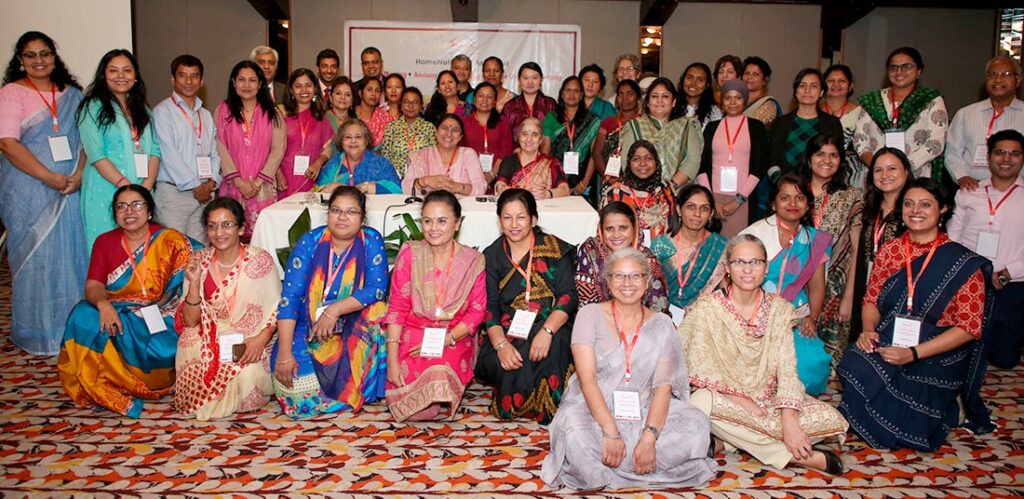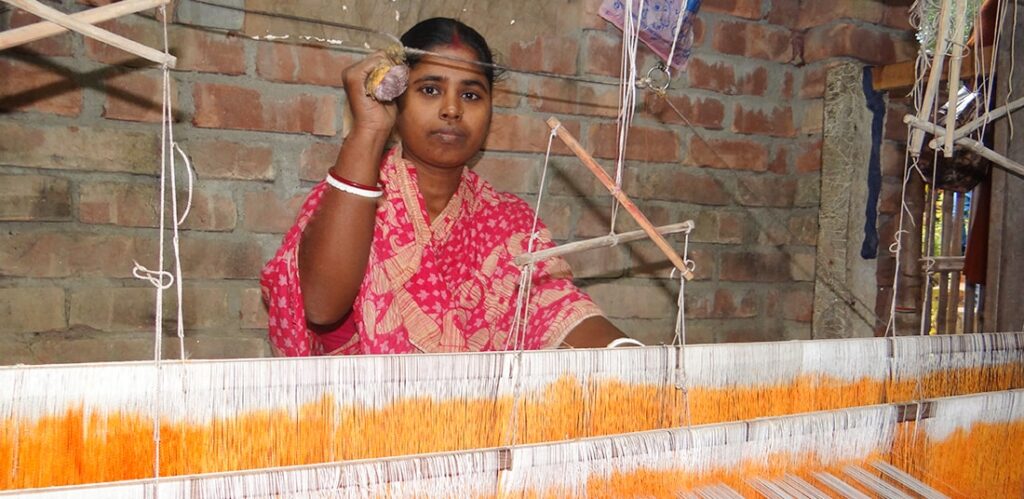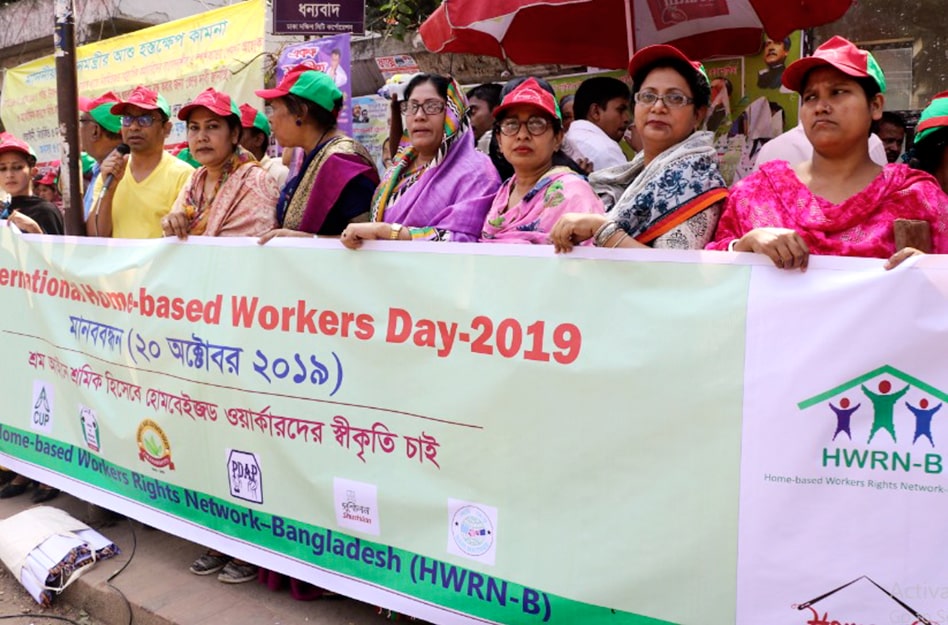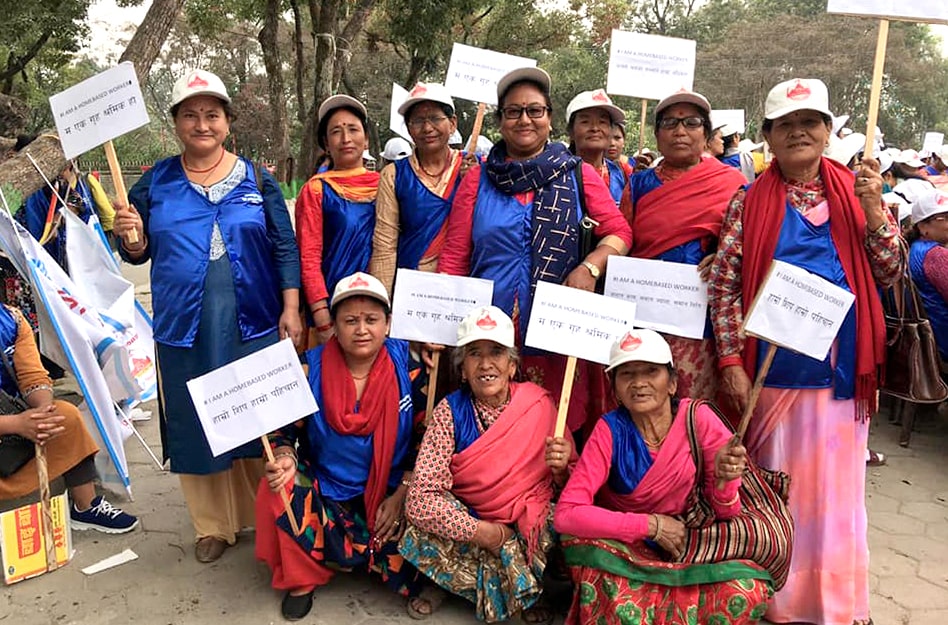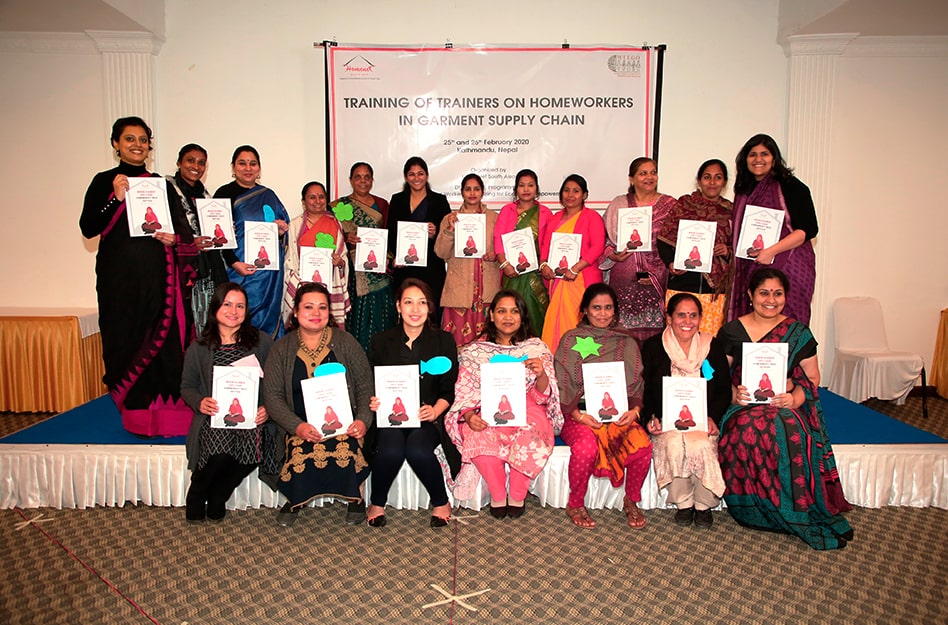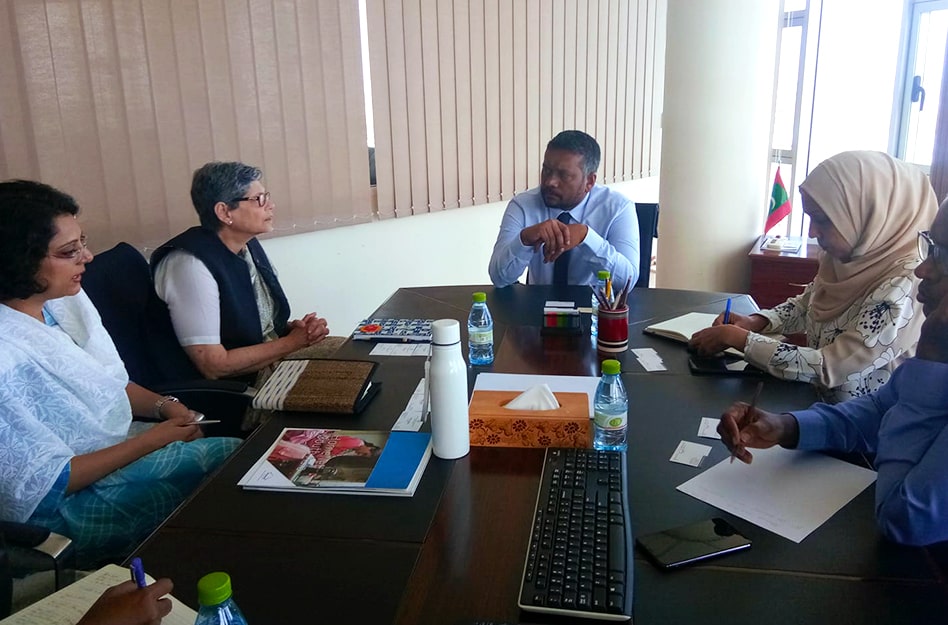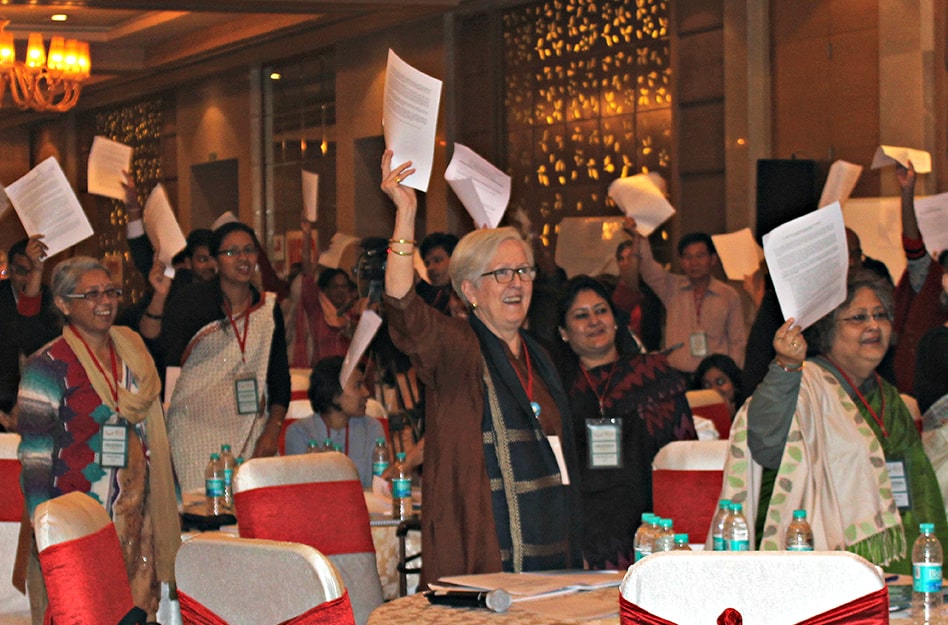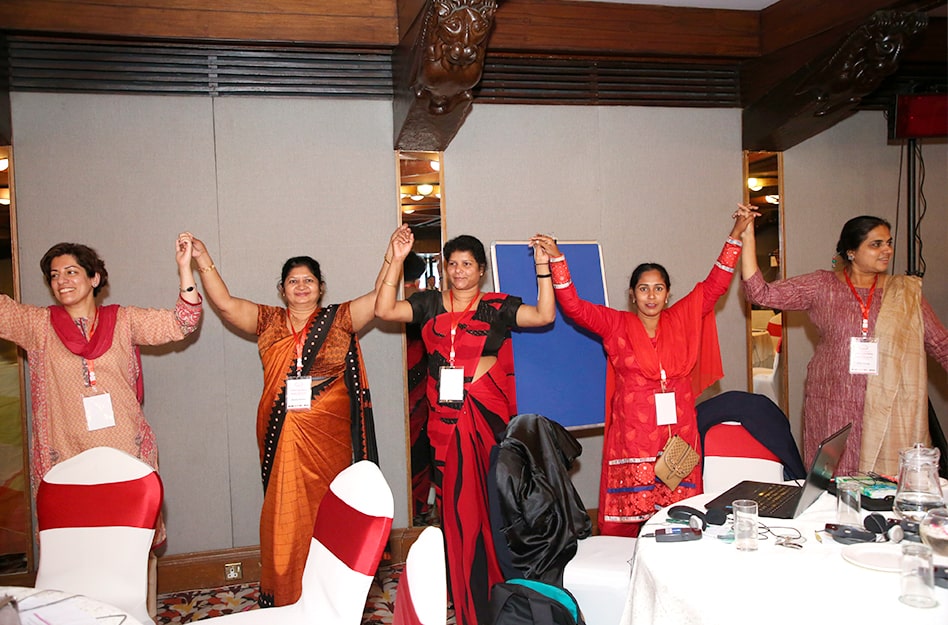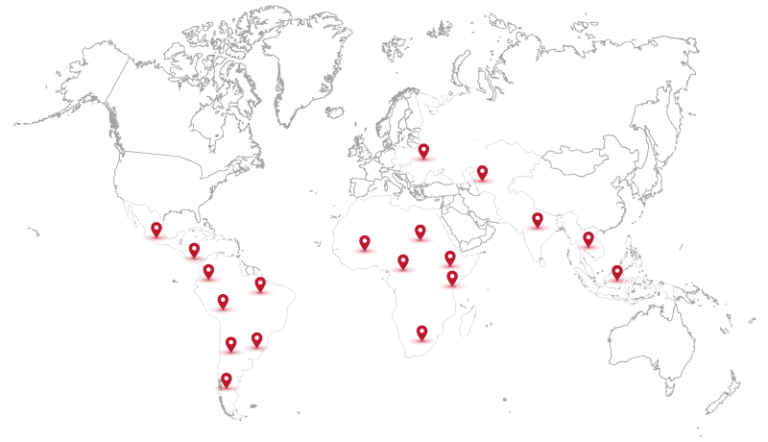Since the dawn of civilisation, when economies were rudimentary, and currency was still in the form of cowries and coarse metal, labour has largely been informal. Despite rapid modernisation, beginning with the Industrial Revolution in the 18th century, the informal economy has continued to expand, employing millions. Workers in the informal sector shape the globalised and digitised world that we currently live in. However, recognition of their work and due compensations for their labour remain a distant dream for many.
Within the informal sector, home-based work has always been significant. Think about how artisans have produced their crafts for centuries. Or from where data jobs are undertaken in the 21st century. The answer is always at home. But home-based workers, especially those who are vulnerable, remain in the shadows, relegated to the bottom of the pyramid.
In the 1970s, recognising the existence of a thriving home-based workforce and their undeniable contributions to national economies and their communities, the Self-Employed Women’s Association (SEWA) – the world’s largest trade union for women informal workers – began organising these workers. It was SEWA, that was founded in India, that coined the term ‘home-based worker’ and, thus, pioneered the home-based workers’ movement.
In the following decades, the SEWA-led home-based workers’ movement spread from within the confines of India to include other South Asian countries and other parts of the globe. And, in the 1990s, this flourishing movement successfully achieved the first ILO Convention for informal workers. The movement was the force behind the passing of Convention 177 on Homework at the International Labour Conference in 1996. At this juncture, workers and their representatives realised the need for strong regional movements that would strengthen the collective voice of home-based workers and work towards bringing them recognition as workers. This led to the establishment of HomeNet South Asia in 2000.
- The Building Of A Representative And Participatory Regional Network: HomeNet South Asia (HNSA) was founded in 2000 by SEWA, WIEGO and UN Women (then UNIFEM). Over two decades, the Network has preserved its democratic, representative and participatory doctrine and, currently, includes 60 organisations from eight countries in the region. Today, the Network represents over 900,000 home-based workers, 95% of whom are women. Members of the Network meet annually and set the agenda and participate in the Network’s activities, initiatives and campaigns.
- The Passing Of The Kathmandu Declaration: While the passing of ILO Convention 177 received great support from worker organisations and several governments, it was met with staunch resistance from employers. Throughout the globe, employers opposed attempts by nations to ratify the Convention, insisting that it would impede business. In this scenario, SEWA, WIEGO, UN Women and other like-minded organisations came together to convince the governments of South Asia to adopt the Kathmandu Declaration in October 2000. Representatives of Governments from India, Nepal, Pakistan and Sri Lanka, along with trade unions and worker-representative organisations from Bangladesh, adopted the Declaration. The Kathmandu Declaration affirms the need for national policies for home-based workers and for minimum protection – that gives them the right to organise, minimum remuneration, occupational health and safety, statutory social protection, maternity, childcare, skill development and literacy programmes. The governments also avowed to encourage access to markets and economic resources, as well as the setting up of the social funds for home-based workers and including them in national statistics. It also entrusted South Asian Association for Regional Cooperation (SAARC) – a regional, inter-governmental body – with the task of addressing the issues of home-based workers, while also taking up measures to help them deal with the issues and opportunities presented by the advent of globalisation.
- Building on this, in 2015, the South Asian home-based worker movement with the support of WIEGO hosted the first-ever global conference of home-based workers. Hosted in New Delhi (India), the conference saw the participation of 70 networks, associations and trade unions of home-based workers, together with non-governmental organisations (NGOs) and researchers from 24 countries. The event culminated in the adoption of the Delhi Declaration.
- Inclusion Of Home-Based Workers In Policies And Policy Platforms: After over a decade-long struggle, home-based workers and their organisations have achieved targeted policies for the workers in Pakistan. The policies have been adopted in two out of the four provinces and have brought about the recognition of home-based workers. In India and Nepal, HomeNet South Asia has led the effort to build policy platforms in partnership with the ILO and included its member organisations. India also has a draft national policy that has been formulated through deliberations and in consultation with workers and experts. At the international-level, HNSA has advocated for the expansion of the scope of the place of work in Convention 190 on Violence and Harassment at the Workplace. This has ensured that home-based workers are covered in this critical international instrument.
- Creation Of Sustainable Worker-Led Producer Companies: Around 2008, SEWA, along with HNSA led an effort to create worker-led producer companies across South Asia. Known as SABAHs, these companies are an enhancement of the cooperative model and are owned and operated by the women home-based workers themselves. They create market linkages and establish transparent supply chains that link workers directly with brands and manufacturing houses. More importantly, home-based workers are decision-makers and are represented on the Boards and other governing bodies. The SABAHs in Nepal, Bhutan, Pakistan and Sri Lanka have been especially successful, linking thousands of women workers with decent work opportunities while also improving their skills and ensuring dignified living. In the aftermath of the COVID-19 pandemic and ensuing lockdowns, these producer companies, along with others like SADHNA (India) and Ruaab (India), have been the only ones able to ensure home-based workers have work making them significant institutions.
- Inclusion Of Home-Based Workers In National Statistics: Often, home-based workers are left out of national labour statistics. This not just robs them of their identity as workers but keeps governments from creating targeted policies, programmes and initiatives for this key worker demographic. With WIEGO taking the lead, HNSA has been able to create statistical briefs on home-based workers in Bangladesh, India, Pakistan and Nepal while also working with governments and leading statistical bodies in Maldives and Bhutan to include home-based workers in national labour surveys.
Undoubtedly, the home-based workers’ movement in South Asia has made giant strides, bringing workers together in solidarity towards achieving common goals. However, a lot remains to be done. The onset of COVID-19, in 2020, especially has cast a dark shadow on the lives and livelihoods of home-based workers. And it will take a sustained regional effort to combat the fallouts of the pandemic. The imploding of the global economy means that there will be a drastic change in the way goods and services are produced – for now and in the near future. The South Asian movement will have to recognise and seize the opportunities that will be made available to home-based workers while also working towards reducing risks. This may include designing and adopting different organising strategies as well as reskilling home-based workers.
Alongside this, the movement will have to continue towards establishing national policies for home-based workers, securing social security for home-based workers, and addressing issues surrounding violence and harassment at the workplace, occupational safety and health, and climate change. Working towards these in unity will ensure that home-based workers are heard and that no policy, no programme and no intervention that is designed for them is bereft of their voice –
Nothing for us, without us.


